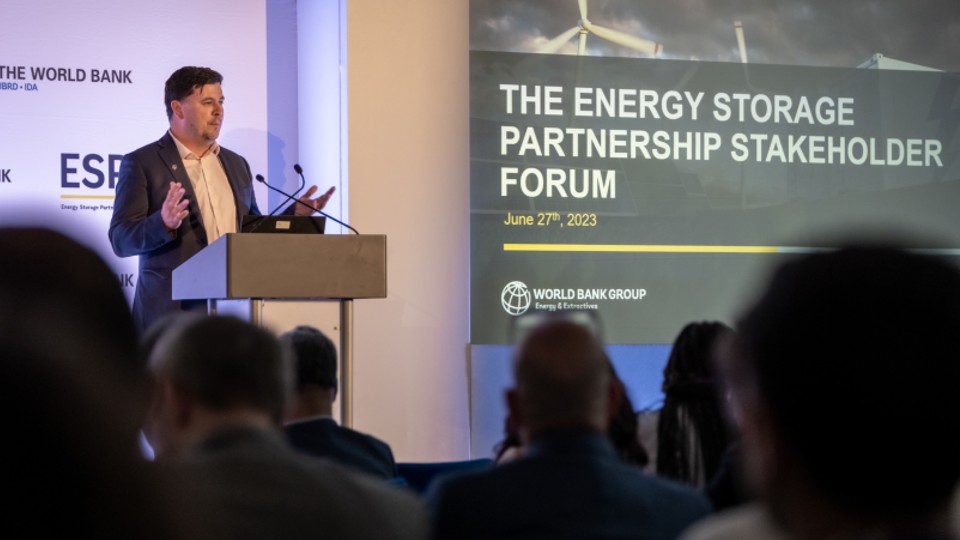Hosted by the University, the World Bank’s Energy Sector Management Assistance Program (ESMAP) and the UK Department for Energy Security and Net Zero, the event provides a platform to share best practice and explore the potential of new and innovative energy storage technologies in reducing carbon emissions in developing countries.
The organisation of the forum was led by Loughborough’s Centre for Sustainable Transitions: Energy, Environment and Resilience (STEER).
Over the course of the week, Professor Ed Brown, Co-Director of STEER and Director of the Modern Energy Cooking Services (MECS) programme, Professor Phil Eames, Director of the Centre for Renewable Energy Systems Technology (CREST), and Professor Mark Howells, Co-Director of STEER and Director of the Climate Compatible Growth Programme (CCG) have shared their expertise with guests and highlighted the world-leading research taking place at Loughborough.
Guests were welcomed to the event by Professor Dan Parsons, Pro Vice-Chancellor for Research and Innovation, who said: “We're delighted to be hosting the Energy Storage Partnership Stakeholder Forum here at Loughborough University this week, bringing together experts from around the world to tackle the pressing challenges of energy storage as part of a net zero future.
“At Loughborough, we're proud to be leading the way in sustainable energy research, and we're fully committed to advancing affordable and clean energy solutions on a global scale. This event presents an exciting opportunity for us to further contribute to the transition towards a more sustainable future.”
The week also featured visits to the British Geological Survey (BGS) Energy Storage Research Facilities and the Trent Basin Community Energy Testbed in Nottingham.
Hosting the forum further highlighted Loughborough’s position as a global leader in research and commitment to affordable and clean energy. Earlier this month, the Times Higher Education (THE) Impact Rankings placed Loughborough University first in the UK and 15th globally for advancing Affordable and Clean Energy – the United Nations’ Sustainable Development Goal (SDG) 7.
